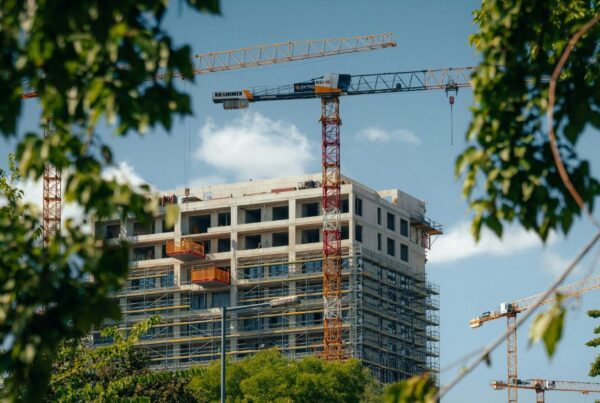 Construction projects are rarely without conflict. From delays and change orders to payment issues and quality disputes, there are countless reasons a construction project might end in disagreement. That’s why one of the most important, but often overlooked, sections in a construction contract is the dispute resolution clause.
Construction projects are rarely without conflict. From delays and change orders to payment issues and quality disputes, there are countless reasons a construction project might end in disagreement. That’s why one of the most important, but often overlooked, sections in a construction contract is the dispute resolution clause.
This clause determines how legal disputes will be resolved, whether in court (litigation) or through private proceedings like arbitration. Choosing the wrong process (or skipping this clause altogether) can lead to unnecessary legal costs, lengthy battles, or loss of leverage.
In this blog post, we’ll explain how to properly draft a dispute resolution clause in a construction contract, break down arbitration vs. litigation, and help you make a smart decision based on your project needs.
What Is a Dispute Resolution Clause in a Construction Contract?
A dispute resolution clause outlines how legal conflicts will be handled if a disagreement arises during or after the construction project. It tells all parties:
- Where the dispute will be resolved (e.g., court or arbitration)
- What process will apply (e.g., mediation first, then binding arbitration)
- Which laws and venue will govern
- Who pays the legal costs
In short, this clause sets expectations and protects all parties from unnecessary confusion or surprise when things go wrong.
Why Is a Dispute Resolution Clause So Important in Construction Contracts?
Construction disputes are common and often complex, involving multiple parties, technical details, and significant financial risk. Without a clear process in place, you may find yourself:
- In a court you didn’t expect
- Paying more in legal fees than necessary
- Waiting years for a resolution
Having a well-written clause gives structure to the process, keeps costs under control, and helps both parties resolve the matter efficiently.
Should I Choose Arbitration or Litigation in My Construction Contract?
One of the key decisions you’ll need to make when drafting this clause is whether disputes will be resolved through arbitration or litigation. Each option has its pros and cons depending on your goals.
What Is Arbitration in a Construction Contract?
Arbitration is a private legal process where disputes are resolved by one or more arbitrators instead of a judge. The decision is usually final and binding.
Pros of Arbitration:
- Typically faster than court
- More private—no public records
- Arbitrators may have construction industry experience
- Limited appeal rights, which can lead to quicker closure
Cons of Arbitration:
- Can be costly depending on arbitrator fees
- Less formal discovery process (which may limit your ability to gather evidence)
- Limited right to appeal if you don’t like the outcome
Arbitration is often used in construction contracts where speed, confidentiality, and industry-specific knowledge are valued.
What Is Litigation in a Construction Contract?
Litigation refers to resolving disputes through the public court system, with judges (and sometimes juries) making the final call.
Pros of Litigation:
- Access to full discovery tools (depositions, subpoenas, etc.)
- Public court system with clear procedural rules
- Right to appeal if the ruling is flawed
- Often less expensive than arbitration if the case settles early
Cons of Litigation:
- Slower process due to court backlogs
- Public record—no confidentiality
- Judges may not have construction-specific knowledge
Litigation is preferred when a case may involve legal precedent, broader discovery, or when one party needs more formal protections.
How to Draft an Effective Dispute Resolution Clause for Your Construction Contract
Here’s what to include when writing a strong dispute resolution clause:
1. Clearly Choose Arbitration or Litigation
Don’t leave this vague. Spell out the chosen method:
“Any dispute arising out of or relating to this Agreement shall be resolved by binding arbitration in accordance with the Construction Industry Arbitration Rules of the American Arbitration Association (AAA)…”
OR
“The parties agree that any disputes shall be litigated in the state or federal courts located in [County], Florida.”
2. Specify the Venue and Governing Law
Clarify which state law applies and where the dispute will be heard:
“This agreement shall be governed by the laws of the State of Florida. Venue for any dispute shall be Miami-Dade County, Florida.”
This avoids disputes over jurisdiction later.
3. Include a Mediation Requirement (Optional but Recommended)
Some contracts require mediation first before arbitration or litigation. Mediation can resolve many disputes early and save both sides time and money.
“Prior to initiating arbitration or litigation, the parties agree to attempt to resolve any disputes through mediation.”
4. Address Attorney’s Fees and Costs
Be clear about who pays legal fees:
“In any dispute arising from this Agreement, the prevailing party shall be entitled to recover reasonable attorney’s fees and costs.”
This clause encourages both parties to act reasonably to avoid unnecessary litigation.
Common Mistakes to Avoid in Construction Dispute Clauses
- Leaving the clause out entirely
- Using vague or inconsistent language
- Failing to specify which rules or arbitration forum applies
- Not including a venue or governing law
- Unintentionally waiving key rights (like appeal rights)
A poorly written clause in a construction contract can do more harm than good. Always have an attorney draft or review your contract language before signing.
Final Thoughts: Choose the Right Dispute Process for Your Project
Whether you’re a contractor, subcontractor, or property owner, choosing the right dispute resolution process before a disagreement happens can save you stress, time, and money. A well-drafted dispute resolution clause in a construction contract tailored to your needs will give you clarity when it matters most. At Ayala Law, we help clients across Florida navigate construction contracts, draft enforceable clauses, and resolve disputes efficiently, whether in court or arbitration.
If you’re drafting or reviewing a construction contract, contact an experienced business, arbitration, and product defect attorney in Miami at 305-570-2208.
You can also contact arbitration attorney Eduardo A. Maura at eduardo@ayalalawpa.com.
Schedule a case evaluation online here.
Subscribe to Our Blog
Stay informed with our latest blog posts delivered directly to your inbox. Gain valuable legal insights, tips, and advice from our seasoned attorneys.







